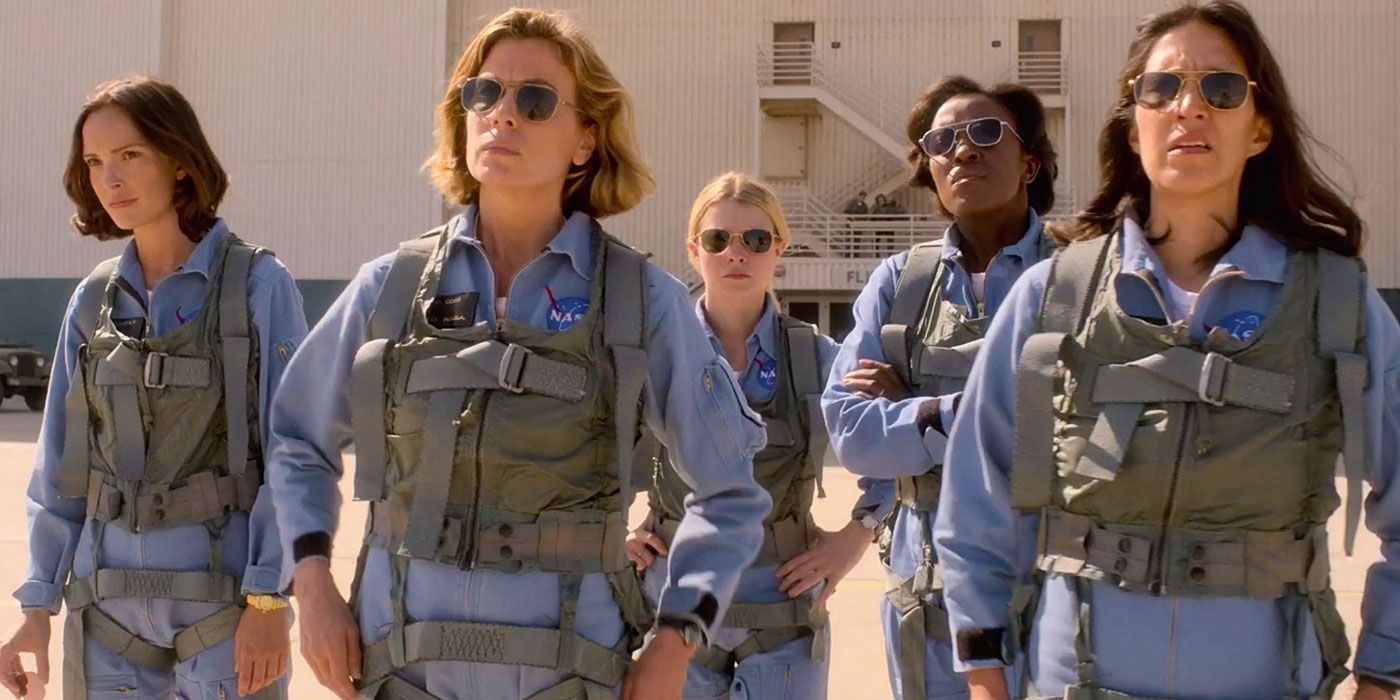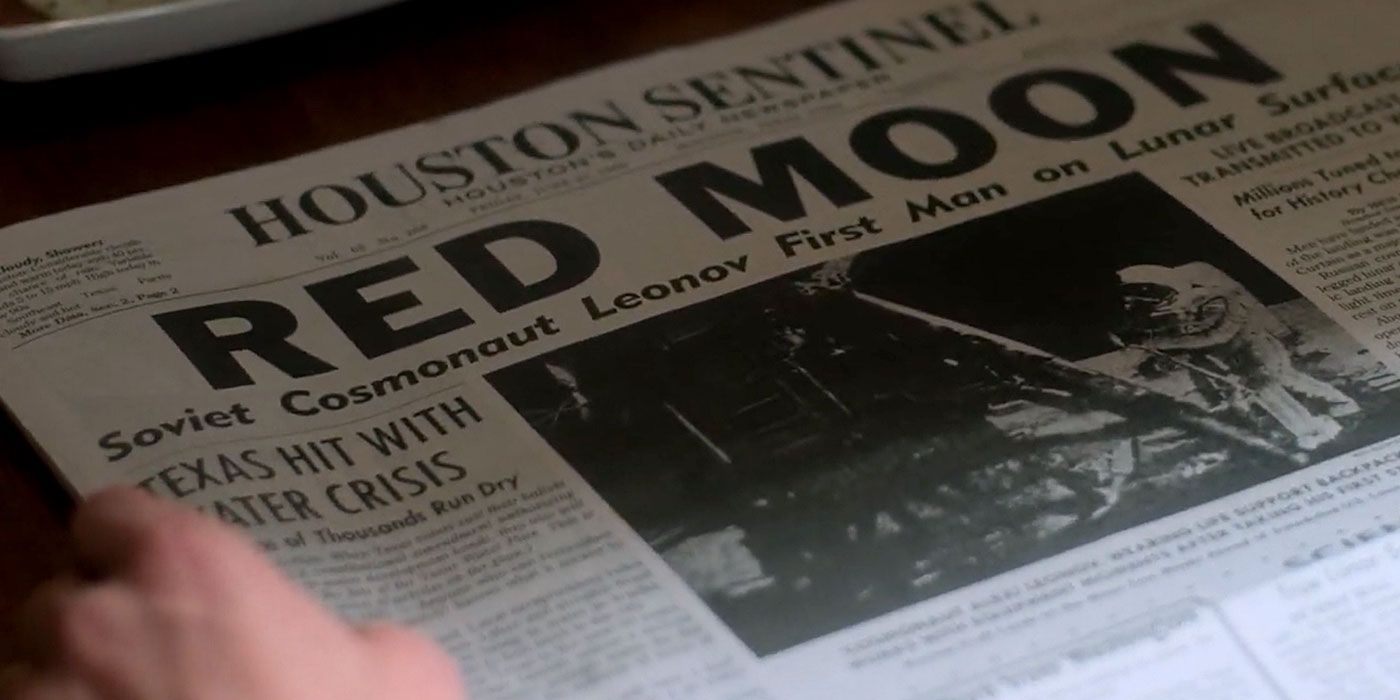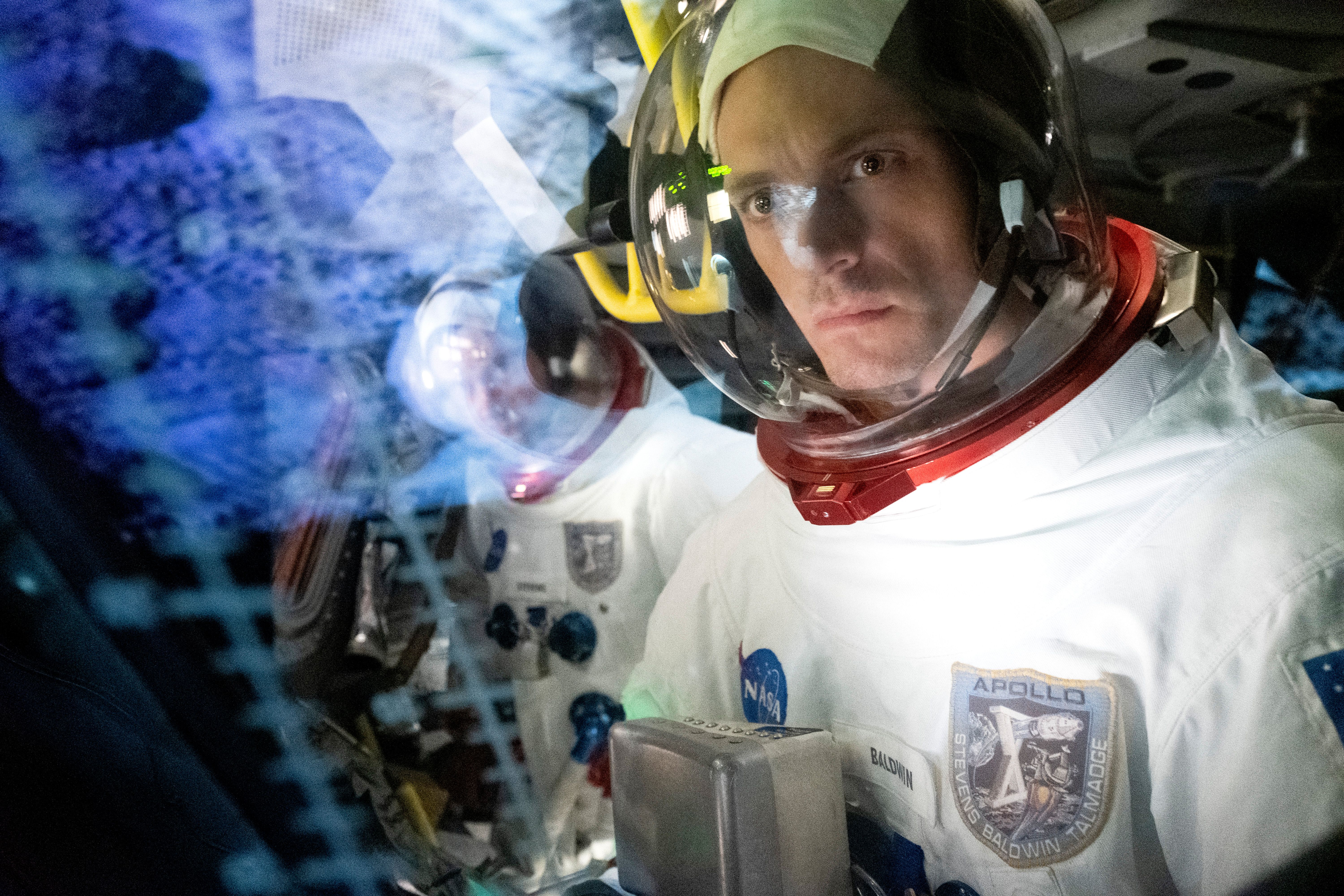The first episode of For All Mankind opens with the kind of scenes that are familiar from dozens of period dramas set in the late 1960s: People from all walks of life gathered around TV screens as a breathless news anchor describes every small development in the mission of the first humans ever to land on the moon. After showing actual archival footage of John F. Kennedy declaring the United States’ intention to send astronauts to the moon, the series seems poised to begin with that historic moment. And then the astronaut finally sets foot on the lunar surface, and the news anchor describes what’s happening: A Soviet cosmonaut has just become the first person on the moon.
It’s an effective use of misdirection that the show can, of course, only employ once, because as soon as that single difference arises, it’s clear For All Mankind isn’t going to follow established history. Creators Ronald D. Moore, Matt Wolpert and Ben Nedivi use the Soviet moon landing as a jumping-off point for their alternate-history story of the space program, in which the United States and the Soviet Union rapidly escalate their competition for space travel following the first lunar journey (as opposed to the gradual downgrade that occurred in real life).
Although the Apple TV+ drama qualifies as sci-fi, thanks to its counter-factual take on history, the execution is meticulously realistic, at least in the first six episodes (of 10 total). NASA shifts its focus to competing with the Soviets, not only in getting to the moon but also in training women astronauts and establishing permanent off-planet bases, but the depiction of those events is still grounded in recognizable period-drama aesthetics and narrative approach.
The creators continue to incorporate actual historical footage in subsequent episodes, sometimes tweaked slightly to fit the new course of history, and the cast is full of real-life figures, including NASA icons like Neil Armstrong, Buzz Aldrin and Wernher von Braun. The mix of real and fictional characters can be a bit awkward, especially because the show’s main characters are mostly fictionalized takes on real people. Fictional astronaut Ed Baldwin (Joel Kinnaman) is presented as the commander of Apollo 10, the mission designated a “dress rehearsal” for the moon landing, and the cast also includes fictionalized versions of people familiar from popular true-life narratives like Hidden Figures, The Right Stuff and Mercury 13. The real and the fictional are so intricately interwoven that it’s sometimes difficult to tell what details have been changed, unless you’re a serious space-program nerd.
It’s clear the creators have a great reverence for NASA and the idea of space travel, and it seems that respect might be holding them back from bolder storytelling. It’s only at the end of the fifth episode that anything recognizably sci-fi takes place, and by that point the audience has slogged through five hours of stodgy (if sometimes engaging) period drama. The characters face marital problems, stubborn bureaucracy, institutional racism and sexism, and logistical engineering challenges, and they respond with mostly measured emotions. For All Mankind doesn’t delve deeply enough into any of the characters’ inner lives to work as a Mad Men for the space race, and it doesn’t have the advantage of telling a true story that provides the built-in feel-good appeal of historical films about the space program.
Kinnaman’s Ed is a fairly dull square-jawed hero, and the show gets more interesting when it shifts focus to the women recruited as part of an initiative to match the Soviets’ “moon maiden,” the first woman to land on the moon. Lost’s Sonya Walger plays a hardened no-nonsense pilot based partially on the women from the Mercury 13 program, who were trained for the earliest space missions but then denied the chance to officially join NASA. Sarah Jones is especially good as Tracy Stevens, wife of Ed’s friend and fellow Apollo 10 astronaut Gordo Stevens (Michael Dorman), who works hard to gain respect and a place among the first class of women astronauts. In later episodes, the show’s alternate-history aspects foreground women’s rights nearly as prominently as space travel.
As the timeline diverges further (the show spans more than five years in those first six episodes), the creators make changes to other historical elements, in some cases that seem a bit like wish fulfillment (Richard Nixon, shown only in archival footage and vocal impersonations, becomes a sort of background recurring villain). Those kinds of slow burns are just starting to show payoffs six episodes in, while other secondary storylines are still stalled in their early stages. An ongoing subplot about a young Mexican immigrant (Olivia Trujillo) who might someday have some kind of position at NASA is so slow-moving that often seems like it takes place in completely unrelated show.
For one of Apple TV+’s first major launches, For All Mankind looks handsome but not spectacular, and some of the special effects are surprisingly unconvincing. It has an ambitious premise that is too often underplayed, and it feels more like the kind of middlebrow prestige-style drama that a second-tier cable network might launch to compete with premium offerings. It’s engaging enough to keep viewers interested in what happens next (especially as history unfolds in more starkly different ways), but it’s not the kind of must-see sensation that warrants an entirely new monthly expense.
Starring Joel Kinnaman, Michael Dorman, Wrenn Schmidt, Sarah Jones, Shantel VanSanten and Jodi Balfour, the first three episodes of the 10-episode first season of For All Mankind debut Friday on Apple TV+.



